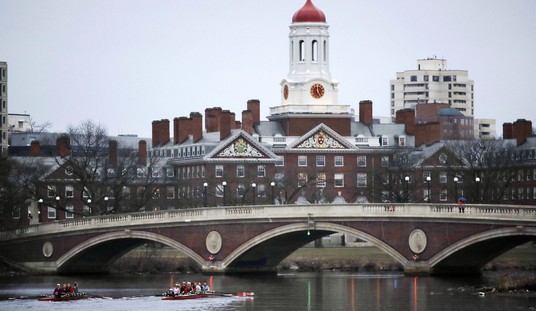In Africa last week, President Bush deplored the genocide in Rwanda in the 1990s, defended his refusal to send U.S. troops to Darfur and decried the ethnic slaughter in Kenya.
Following a fraudulent election, the Kikyu, the dominant tribe in Kenya, have been subjected to merciless assault. People are separating from one another and butchering one another along lines of blood and soil.
According to a compelling lead article in the new Foreign Affairs, "Us and Them: The Enduring Power of Ethnic Nationalism," we may be witnessing in the Third World a re-enactment of the ethnic wars that tore Europe to pieces in the 20th century.
"Ethnonationalism," writes history professor Jerry Z. Muller of Catholic University, "has played a more profound role in modern history than is commonly understood, and the processes that led to the dominance of the ethnonational state and the separation of ethnic groups in Europe are likely to recur elsewhere."
Western Man has mis-taught himself his own history.
Writes Muller: "A familiar and influential narrative of 20th-century European history argues that nationalism twice led to war, in 1914 and then again in 1939. Thereafter, the story goes, Europeans concluded that nationalism was a danger and gradually abandoned it. In the postwar decades, Western Europeans enmeshed themselves in a web of transnational institutions, culminating in the European Union."
Muller contends that this is a myth, that peace came to the Old Continent only after the triumph of ethnonationalism, after the peoples of Europe had sorted themselves out and each achieved its own home.
Recommended
At the beginning of the 20th century, there were three multi-ethnic empires in Europe: the Ottoman, Russian and Austro-Hungarian. The ethnonationalist Balkan wars of 1912 and 1913 tore at the first.
World War I was ignited by Serbs seeking to rip Bosnia away from Austria-Hungary. After four years of slaughter, the Serbs succeeded, and ethnonationalism triumphed in Europe.
Out of the dead Ottoman Empire came the ethnonationalist state of Turkey and an ethnic transfer of populations between Ankara and Athens. Armenians were massacred and expelled from Turkey.
Out of the Russian and Austro-Hungarian empires came Finland, Estonia, Lativia, Lithuania, Poland, Czechoslovakia and Yugoslavia. In the latter three nations, however, a majority ethnic group ruled minorities that wished either their own national home, or to join lost kinsmen.
In Poland, there were Ukrainians, Germans, Lithuanians and Jews. In Czechoslovkia, half the population was German, Slovak, Hungarian, Polish, Ruthenian or Jewish. In Yugoslavia were Slovenes, Croats, Bosnians, Serbs, Macedonians, Montenegrins and Albanians.
The Second World War came out of Hitler's attempt to unite all Germans in one ethnonational home -- thus the Anschluss with Austria, the demand for return of the Sudeten Deutsch, and the pressure on Poland to return the Germans' lost city of Danzig, and for Lithuania to give back German Memel and the Memelland it seized in 1923.
World War II advanced the process in the most horrible of ways.
The Jews of Europe, with no national home, perished, or fled to create one, in Israel. The Germans of the Baltic states, Prussia, Poland, Czechoslovakia, the Balkans and their own eastern provinces, almost to Berlin, were expelled in the most brutal act of ethnic cleansing in history -- 13 million to 15 million Germans, of whom 2 million perished in the exodus.
At the end of World War II, Europe's nations were more ethnically homogenous than they had ever been, at a horrendous cost in blood.
After 45 years of Cold War, the remaining multi-ethnic states -- the Soviet Union, Czechoslovakia and Yugoslavia -- broke up into more than two dozen nation-states, all rooted in ethnonationlism.
As Muller argues, ethnonationalism may be a precondition of liberal democracy. Only after all the tribes of Europe had their own ethnically homogenous nation-states did peace and comity come. And what happened in Europe in the 20th century may be a precursor of what is to come in Latin America, the Middle East, Africa and Asia.
In China, Uighurs, Mongolians and Tibetans all resist assimilation. Tatarstan may be the next problem for Russia. In the Balkans, it is Kosovo. Serbs there and in Bosnia may emulate the Albanians and secede.
Americans, writes Muller, "find ethnonationalism discomfiting both intellectually and morally. Social scientists go to great lengths to demonstrate that this is a product not of nature but of culture. ...
"But none of this will make ethnonationalism go away."
Indeed, we see it bubbling up from the Basque country of Spain, to Belgium, Bolivia, Baghdad and Beirut. Perhaps the wisest counsel for the United States may be to get out of the way of this elemental force. Rather than seek to halt the inexorable, we should seek to accommodate it and ameliorate its sometimes awful consequences.
And we should look to our own land. According to Pew Research, there will be 127 million Hispanics here by mid-century, tripling today's 45 million -- and almost 100 million new immigrants. No nation faces a graver threat from this resurgence of ethnonationalism than does our own.
Look homeward, America.























Join the conversation as a VIP Member